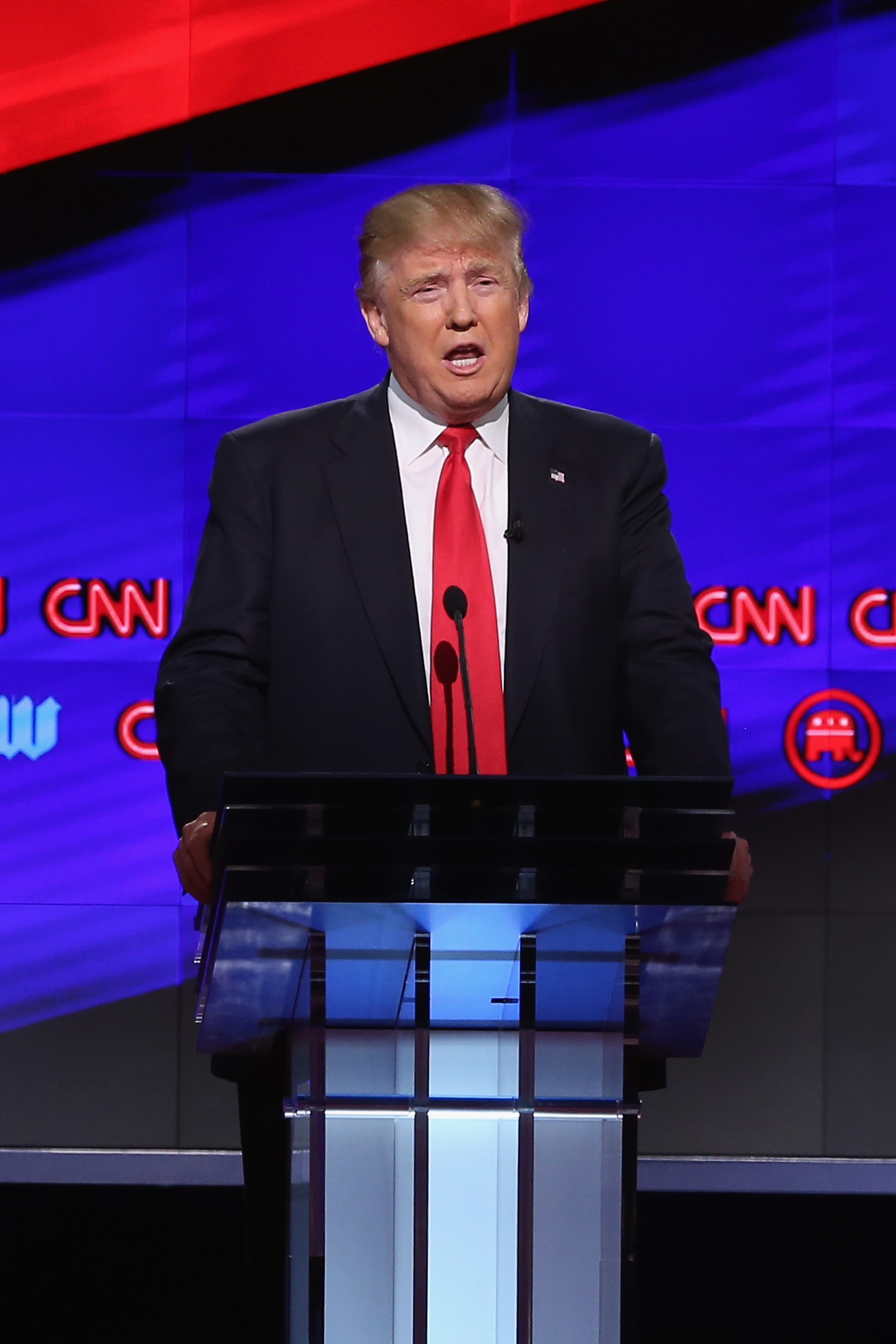
At Thursday night’s GOP debate, Trump doubled down on his comments earlier in the week that “Islam hates us,” attempting to link that assertion to treatment of women in some Middle Eastern countries.
“There is tremendous hate. Where large portions of a group of people, Islam, large portions want to use very, very harsh means,” said the Republican frontrunner. “Let me go a step further. Women are treated horribly. You know that. You do know that. Women are treated horribly, and other things are happening that are very, very bad.”
Just as the business mogul’s initial comments about Islam’s supposed war with the West were met with a swift backlash from Muslim community leaders, some Muslim women say that Trump’s sudden concern for their welfare is counterproductive at best and Islamaphobic at worst.
In conversations with TIME, female Muslim leaders and intellectuals argued that the business mogul’s characterization of Islam as anti-women was incorrect and hypocritical. Others said that misogyny in some interpretations of Islam is very real, but off-the-cuff comments just antagonize the community and make reform more difficult. All agreed that Trump’s statements don’t do anything to help Muslim women.
Zainab Chaudary, a media specialist with ReThink Media who focuses on security and equal rights, says Trump’s negative statements about Islam are more likely to end up create prejudice and attacks on Muslims than any positive change. “The negative stereotypes he’s perpetuating actually lead to more violence against women who are Muslim or who are perceived as Muslim,” Chaudary says.
According to Chaudary, Muslim women tend to be more publicly visible than Muslim men, especially if they wear hijab, making them especially vulnerable. “They’re most likely to be the ones experiencing Islamophobia,” she adds
Lori Saroya, director of Chapter Development at the Council on American-Islamic Relations, agreed that negative discourse around Islam often ends up hurting female members of the faith. “When I started wearing the hijab, nobody in my family wore it and they were initially worried about my safety and how I’m perceived,” says Saroya, who says that wearing a hijab has rarely caused any problems for her.
Other prominent Muslim women said they saw hypocrisy in Trump standing up for women’s rights in Muslim populations but not in his own family. “For Donald Trump to talk about women’s rights? Have you seen how he treats his wife?” says Sarwat Husain, president of the San Antonio chapter of the Council on American-Islamic Relations. “Look on the screen when he appears with his wife, has she ever held his hand? She is always standing behind him, like a servant or a maid.”
But some argued that while Trump’s comments were crude and disingenuous, they pointed to real problems within Muslim communities.
“He’s so indelicate in his comments, he’s definitely not the king of subtlety and nuance,” says Asra Nomani, co-founder of the Muslim Reform Movement and author of Standing Alone: An American Woman’s Struggle for the Soul of Islam. “But the truth is that we do have a very serious problem within our Muslim communities with interpretations of Islam that do treat women as second-class citizens.”
Nomani said that the injustices commonly criticized in some interpretations of Islam were “very real,” saying many clerics do preach hatred for America and some communities condone and encourage pervasive discrimination against women. But she noted that Islam also includes passionate believers in gender equality, like her own father or the father of Malala Yousafzai. The problem, she says, is that reformers can’t call out the injustices within some interpretations of Islam without being accused of Islamophobia.
“People will rush to protect the ‘honor’ of Islam by whitewashing the very serious problems in these communities,” she says. “Many of us sit in the crosshairs of these allegations of Islamophobia just because we dare to air our community’s dirty laundry in public.”
“There’s this honor brigade that tries to stifle debate and silence any of these conversations,” she says, adding that even criticism from other Muslims can sometimes be written off as bigotry. “It becomes very convenient to say ‘look, everybody’s picking on us.'”
Nomani says Trump’s brash obliviousness to this delicate cultural relationship and his divisive rhetoric only make that problem worse.
“Every time he says anything, it polarizes people so quickly that we can’t discuss anything,” Nomani said, cautioning that Muslims in other countries “end up using Trump and his comments as a metaphor for all of America.”
More Must-Reads from TIME
- Donald Trump Is TIME's 2024 Person of the Year
- Why We Chose Trump as Person of the Year
- Is Intermittent Fasting Good or Bad for You?
- The 100 Must-Read Books of 2024
- The 20 Best Christmas TV Episodes
- Column: If Optimism Feels Ridiculous Now, Try Hope
- The Future of Climate Action Is Trade Policy
- Merle Bombardieri Is Helping People Make the Baby Decision
Write to Charlotte Alter at charlotte.alter@time.com